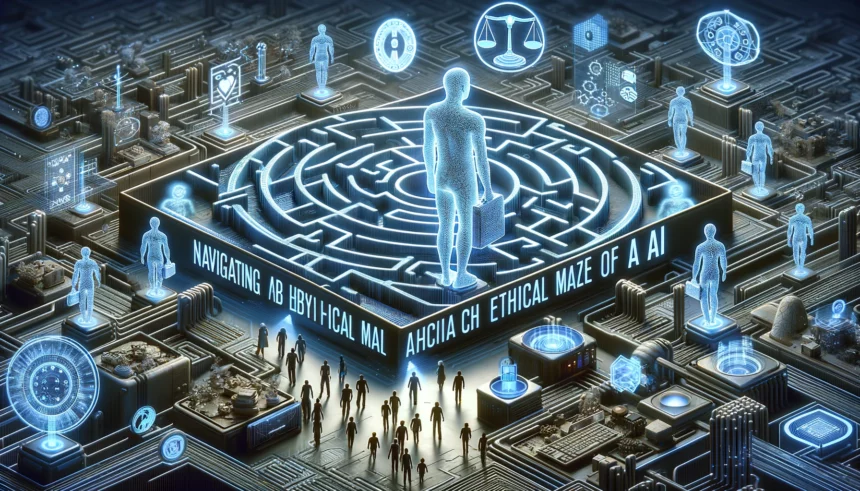In the rapidly changing world of technology, Artificial Intelligence (AI) stands out as a transformative power, altering the fabric of various sectors and revolutionizing our daily lives. However, the ascent of AI is not without its ethical quandaries. This exploration delves into the moral considerations tied to AI’s integration into technology, examining its widespread impact.
The Ethical Quandary: The sophistication of AI systems today brings ethical debates to the forefront. A significant concern is algorithmic bias. Since AI learns from data, biases in that data can lead to AI systems perpetuating or even worsening societal prejudices. This creates an ethical conundrum, potentially resulting in unfair outcomes in everything from job selection to law enforcement.
Privacy Concerns: Privacy emerges as another ethical battleground in the AI era. The operation of AI systems hinges on vast data pools, igniting worries about diminishing privacy. Companies are thus faced with the delicate task of leveraging AI’s capabilities while upholding privacy rights. The solution lies in stricter data handling regulations and a commitment to transparency.
The Workforce Transformation: AI’s foray into the job market sparks fear of widespread job losses. Automation, driven by AI, threatens to obsolete certain roles, posing ethical questions about societal responsibility towards displaced workers. A forward-thinking approach, including retraining programs and policies aimed at economic fairness, is essential.
The Imperative of Transparency: Transparency in AI’s decision-making is critical for trust. The opacity of some AI algorithms complicates understanding their decision paths, especially in sensitive sectors like healthcare and finance. Ethical AI use demands clarity about these processes and robust accountability mechanisms for errors or misuse.
AI on the Battlefield: The deployment of AI in military and security contexts introduces ethical dilemmas regarding unintended outcomes and the potential for misuse. The challenge lies in harnessing AI for defense while ensuring its ethical application, necessitating global dialogue and ethical standards.
Towards Ethical Solutions: Addressing AI’s ethical complexities calls for a collaborative effort among tech professionals, ethicists, policymakers, and the public. Open discussions about AI’s capabilities and limitations are fundamental to building an informed trust.
The Role of Regulation: Governments and international organizations are pivotal in setting ethical AI guidelines. Dynamic regulatory frameworks, evolving with technological progress, are crucial for ensuring AI’s responsible evolution.
The Power of Education: Public education on AI and its ethical stakes is crucial for fostering informed debate and responsible engagement with technology. Initiatives should target various demographics and professions, cultivating a tech-literate yet ethically aware society.
As we venture further into the AI-augmented future, ethical considerations remain paramount. By championing transparency, accountability, and fairness, we can direct AI’s potential towards universally beneficial outcomes. An ethical approach to AI in technology ensures that innovation not only advances our capabilities but does so in alignment with our collective values, paving the way for a technologically advanced yet morally grounded future.
















